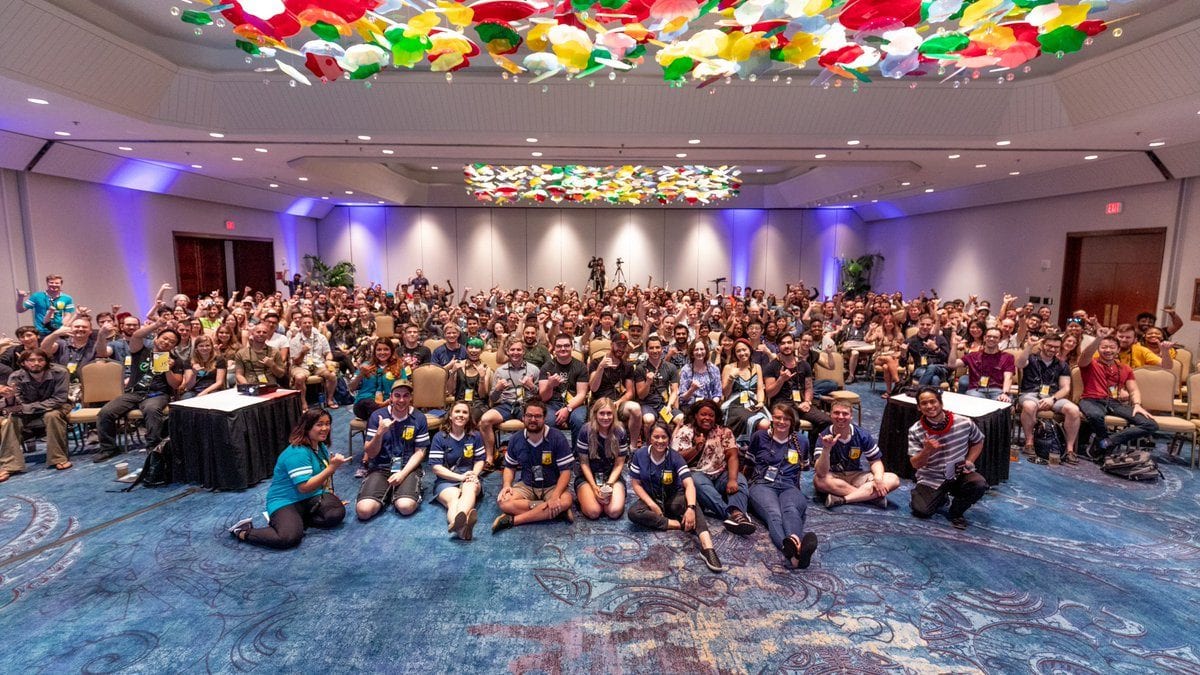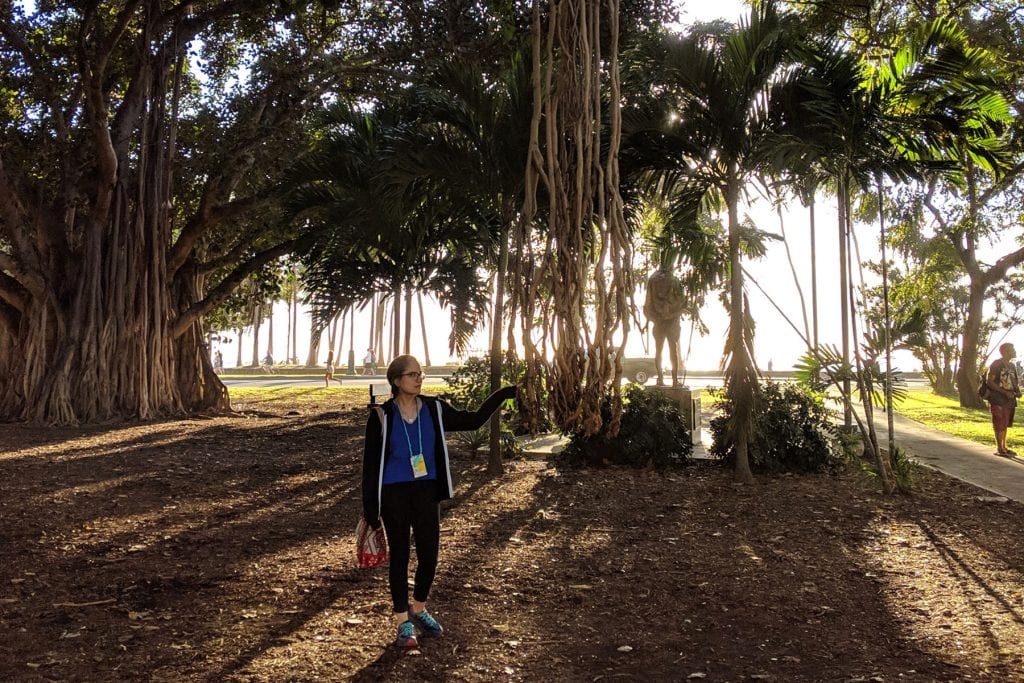Skimming through Twitter a few months ago a Tweet caught my eye: JSConf Hawai’i was being announced as the latest in the global JSConf series. It’d be happening in Honolulu, Hawai’i in early February, the call for papers (CFPs) had just been sent out, and they were offering diversity scholarships!
Within a couple of weeks, I had submitted a talk proposal and an application for their diversity scholarship. A few weeks after that, I got a reply. My talk hadn’t been selected but I had been awarded a diversity scholarship, which would cover the cost of my flight, hotel, and conference ticket. I was bummed my talk hadn’t been accepted but I was excited to go.
Months later, I found myself sitting in a room surrounded by fellow JavaScript developers getting the lowdown on the days ahead. I was thrilled to be at the conference for many reasons. The organizers made a noticeable effort to reach out to people from underrepresented groups in tech. The conference had an explicit Code of Conduct (COC). Plus ones were invited to some events. And we had the option to defer our swag and opt instead for a donation to be made to Aloha Lives Here charity.
During the opening remarks and via conference handouts the COC was brought up repeatedly and we were reminded to use inclusive language and remain mindful of those around you. This, coupled with great coffee and weather, meant the day started off on a high.
Things took a turn and I found myself on a conference rollercoaster. Speakers and MCs were using “guys” when referring to the audience and “crazy” when describing experiences. These are not inclusive words and can be triggering for some. I was taken aback when it wasn’t addressed, giving the impression the organizers didn’t care.
Along the left-rear wall was a projection of the conference logo on top of a backdrop that shifted constantly. Sitting near it was a mistake. The repeated flickering was distracting and anxiety-inducing.
Overall the talks I attended were great, but it was difficult to remain attentive towards the end of the day. It seemed like lighter topics were reserved for earlier time slots while talks that required more active thinking were held after lunch. Through side conversations and observation, I gathered that many were tuning out towards the afternoon. It didn’t help that there were no talk descriptions provided online or in handouts, which meant you didn’t really know what you were getting into when sitting down. This was not ideal and the first time I’ve encountered this at a talk-driven event.
Given the smaller size of the conference, I expected ample opportunities to speak with people about what they were working on and the tools they were using. Instead, I found myself wanting to run away because everyone else seemed to already know each other, huddled in large enclosed circles deep in conversation. Cue the imposter syndrome! I did end up chatting with a few people, but sadly all my interactions were quick and superficial.
The faltering on language usage and lack of thoughtful opportunities for people to interact (especially for those of us who are more introverted), affected my experience the most. Having run events and volunteered at many myself, some of these hiccups are notoriously difficult to get right—especially the first time around—while others require specific planning, foresight, and workflow for immediate action.
Conferences can be stressful and difficult at times. If you come in on the first day expecting every experience to be wonderful, you are in for a disappointment. However, the experience is valuable and worthy. At this event, I heard some exciting talks and got to interact with some awesome people. But most of all, I got to experience what it can be like to feel doubt and anxiety and I learned how to overcome those emotions and have a good time!
I loved the diversity in talk topics, speakers, and attendees. I thought the talks played well with each other and there was something to be taken away by people across different skill levels and backgrounds. While my conversations with people left much to be desired, everyone I interacted with was respectful and at no time did I feel unsafe. A total win there!
1. HI and AI, by Kyle Oba
Kyle discussed a project he worked on where facial recognition was used to match visitors at the Honolulu Museum with different art objects, whilst explaining the tech behind it in the process.
2. JavaScript is AsynchroWAT?, by Crystal Martin
Crystal talked about all things callbacks, promises, and async/await using female-relatable real life examples.
3. What Tamagotchis can teach you about ES6 generators, by Jenn Creighton
Jenn brought Tamagotchis to the browser and talked about optimization and state management using ES6 generators.
My favorite joke of the conference was from Kyle Oba when he uttered a slightly paraphrased version of: “…python, you know, executable pseudocode,” whilst discussing how it’s used almost exclusively in data science.
If you’d like to attend a conference and maybe even travel for free while improving your coding know-how, here are five conferences offering scholarships in 2019:
- Connect by Women Who Code (award covers admission)
- Mongo DB (award covers admission, 1 workshop, and more)
- Grace Hopper Conference (award covers admission, accommodation, airfare)
- O’Reilly (award covers admission, some expenses)
- Google (award covers admission, some expenses)
- And more!
Want to speak at a conference? Get help crafting your first talk proposal for a conference or meet-up at an upcoming Global CFP Day. It’s free and held yearly.
Follow us on social media for updates!








